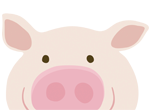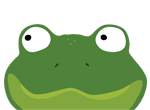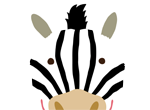Concussion treatment for children
Find a neuro specialistWhen it comes to concussions, we appreciate the complexities involved and the concern you have for your child’s brain. We provide a thorough evaluation, then help ensure a full recovery for a safe return to school, sports and other activities.
To deliver the neurology care your child needs, our concussion clinic draws from a number of specialties including:
- Neurology
- Neuropsychology
- Neurosurgery
- Sports medicine
- Physical medicine and rehabilitation
What is a concussion?
A concussion is a type of traumatic brain injury, or TBI, that can occur after a hit to the head or a strong jostle of the body. These forces can cause your child's brain to bump against the skull, damaging brain cells and harming brain function, at least temporarily.
While concussions are considered a milder form of TBI, you shouldn’t take them lightly. Your child's growing brain is more vulnerable as it recovers from a concussion. If your child doesn’t take the time to heal and protect their head, they run the risk of experiencing a second concussion before the first one has healed, which can be dangerous. Thankfully, though, they can avoid this complication and make a full recovery with the right care.
What causes a concussion?
Concussions can happen throughout a lifetime. Common causes in childhood and adolescence include:
- Athletic injuries, particularly from contact sports
- Car accidents
- Falls
- Objects hitting the head
Concussion symptoms
Concussions can have physical, cognitive and emotional effects. Signs are sometimes subtle, and symptoms vary from person to person.
When a concussion happens, you may notice differences in your child, or your child may realize what’s going on and tell you. Symptoms can develop right away or take a few days to emerge. Symptoms also may last days, weeks or even months. Common symptoms experienced by children with concussions include:
- Blurry or double vision
- Changes in behavior, eating or sleeping
- Confusion, fogginess or haziness
- Dizziness or loss of balance
- Fatigue
- Headaches
- Light or sound sensitivity
- Nausea or vomiting
- Memory or concentration problems
- Losing consciousness
Myths about concussion symptoms
Myth: "If your child didn't lose consciousness, they don't have a concussion."
Fact: While some people lose consciousness when they get a concussion, many don’t.
Myth: "You should never let your child fall asleep if you think they have a concussion."
Fact: It's a myth that you shouldn't sleep with a concussion. In fact, sleep is good for your child's brain.
Remember that you know your child better than their coaches or trainers do. If you have a concern, let your child's doctor be your guide.
Baseline testing for brain health
Student athletes can come to us for baseline screening of brain function. By evaluating how their brain works, we can identify any underlying conditions that may affect how they respond to a concussion. We can also create a comparison tool to use if they go on to experience a brain injury. Having a baseline can help to determine when they’ve fully recovered.
Concussion diagnosis
If you suspect your child has a concussion, make sure to seek care. Our team asks your child about effects on schoolwork, home life, sleep, activities and relationships. Our team also performs a physical evaluation to check your child’s:
- Balance
- Coordination
- Concentration
- Memory
- Muscle strength
- Reflexes
- Sensation
- Vision
Imaging can’t detect a concussion. However, we may recommend an MRI or computed tomography (CT) to check for skull fractures, internal bleeding or brain swelling. Learn more about what to expect from a neurological evaluation.
Concussion treatment
If needed, we can arrange physical therapy and prescribe medications to relieve certain symptoms. But the main concussion treatment is to rest and protect the brain. Our team works with you to determine the best way for your child to recover and provides complete follow-up care.
To help your child make a complete recovery, we typically recommend:
- Sleep: Sleep helps the brain recover, not only at night but also during the day. Your child should rest throughout the day.
- Staying hydrated: Make sure your child drinks plenty of fluids.
- Limiting screen time: Keep time in front of computers, phones, TVs and other screens to a minimum, at least at first. If electronics don’t seem to affect symptoms, then it’s typically OK to slowly reintroduce them.
- Taking a break from sports: Your child may want to return to the field immediately, but it’s important to avoid another head injury while the concussion heals. Some light physical activity is OK after a few days if your child is up for it.
- Making adjustments for school and work: Your child likely needs to take some time off from school, as well as work if they have a job. Even when they return, they may need some temporary accommodations.
- Approaching pain medicine carefully: Only give your child over-the-counter pain medication if recommended by your doctor. When it comes to concussion, medications could make symptoms worse in some cases.
- Getting medical clearance: Before resuming normal activities, see your child’s doctor for a follow-up visit to make sure recovery is complete. In addition to working with you directly, we can consult with teachers, coaches and athletic trainers to ensure a safe return.
Get Care
Kid-focused. Close to home. We’re here for your child in person and online.





